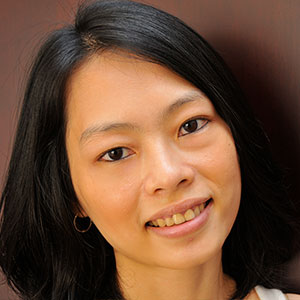Let me tell you two situations I encountered.
In the first, a friend of mine, a teacher in a primary school, rang me up just a few days before the 13th general election. She wanted to know if it was okay for her to vote for the opposition. I asked her why the concern. She replied that as our votes were being “watched” by the government, her vote might affect her career as a teacher. If she voted for the opposition, she could risk her pension.
In the second, I came across several students who showed concerns on Malaysian politics and current issues. I encouraged them to write their views in newspapers and online news portals.
They, too, asked the similar thing. Is it okay to write something that is not “conventional”? Will such an act risk their scholarships?
Well, I can totally understand their situations.
Politics is exciting, because people disagree. But that is also exactly what the government is worried about.
Politics is part and parcel of everyone’s life. It is not merely about Barisan Nasional (BN) versus Pakatan Rakyat (PR).
Recently, a teacher was ordered by the Education Ministry to remove her Facebook page simply because she posted campaign posters of Dyana Sofya, the DAP candidate in Teluk Intan.
The ministry deemed such act as anti-government.
Educators are restricted from expressing their views even on a personal Facebook page.
Indirectly, it means that educators who receive monthly salary and later on, pension, from the government must obey their “employer”. This is reflected in the phrase that the government uses in official letters, “Saya Yang Menurut Perintah”.
It is indeed depressing to see the ministry being shallow by controlling the “political” views of educators such as teachers and lecturers.
In fact, educators must be aware of politics and be able to discuss about it, and this includes international politics.
What kind of generation will we produce if a teacher is naive about the goings on in the country?
We risk producing an ignorant generation who don't care for others.
We risk producing a generation who complains about every single matter in the country.
We risk producing a generation who opt to migrate to other countries simply because they feel their own country is not good enough.
We should in fact produce a generation who can criticise their government's flaws and come up with better solutions to move the country forward. In short, we need to produce leaders, the kind that are lacking now.
On one hand, we get rid of exam-based system by introducing the school-based assessment to the students. On the other hand, we ask teachers to just focus on the textbooks, as they are not allowed to discuss politics and pressing issues.
Isn’t that ironic?
There is great benefit in allowing students to be exposed to a wide variety of opinions. I don't see any problem if the teachers discuss politics with the students, provided that they must deal with it in a professional manner.
Having political discussions in the class is a great way to learn about our society. At the same time, it fosters an environment where the students get to discuss current issues and eventually develop their own opinions.
After all, schools and universities are places where we prepare the students for the world outside.
Hence, if we want to encourage the younger generation to become knowledgeable citizens, we should not regard politics as taboo. – June 9, 2014.
* This is the personal opinion of the writer or publication and does not necessarily represent the views of The Malaysian Insider.


Comments
Please refrain from nicknames or comments of a racist, sexist, personal, vulgar or derogatory nature, or you may risk being blocked from commenting in our website. We encourage commenters to use their real names as their username. As comments are moderated, they may not appear immediately or even on the same day you posted them. We also reserve the right to delete off-topic comments